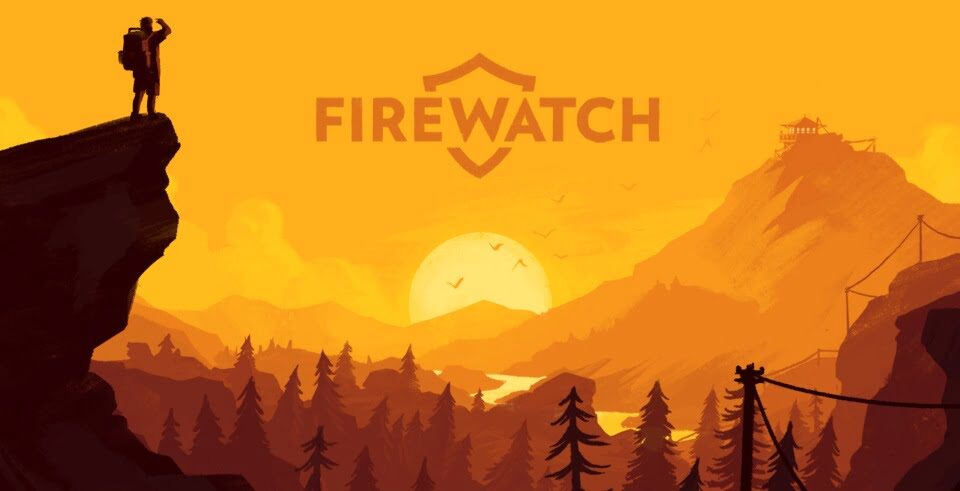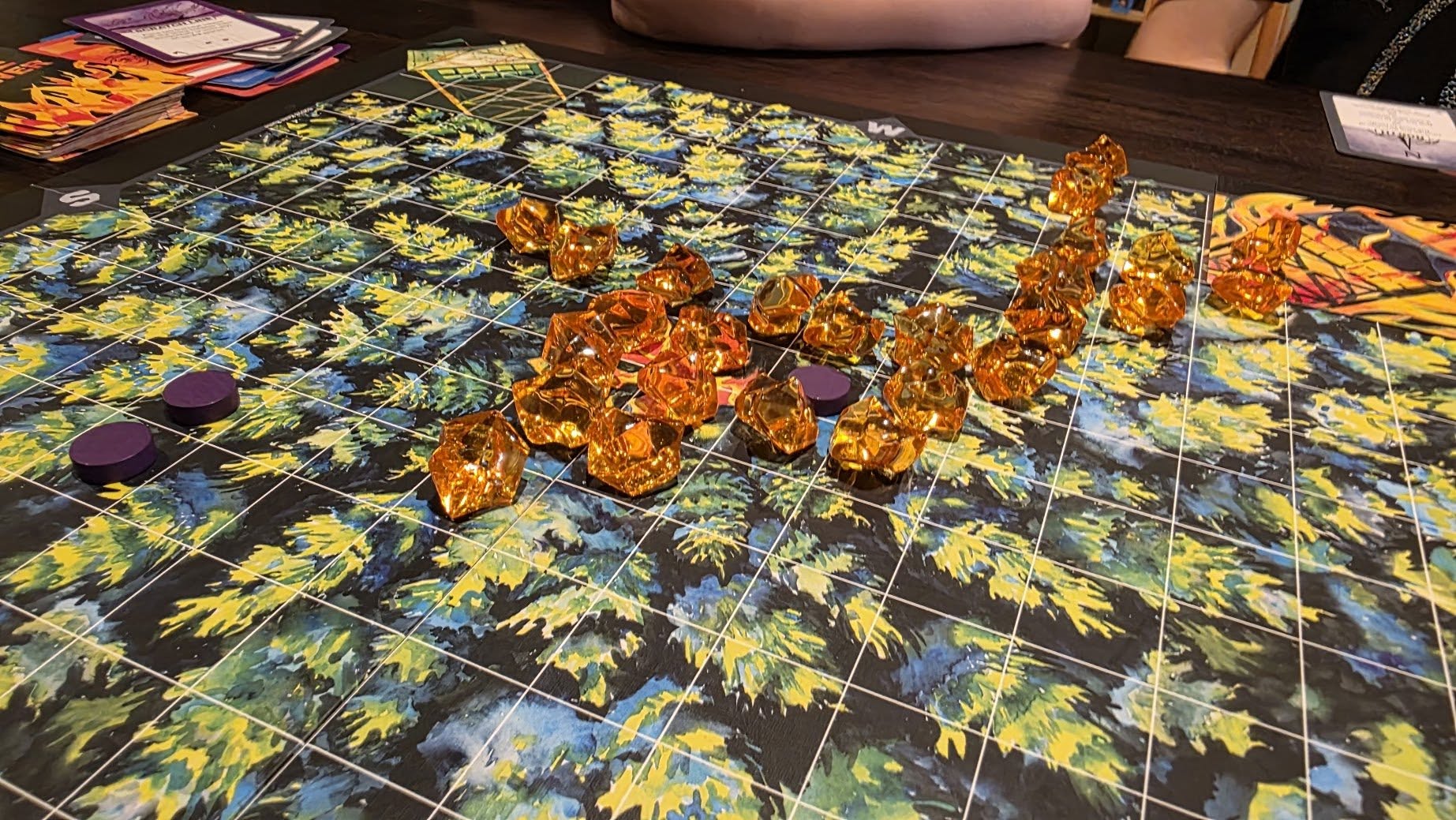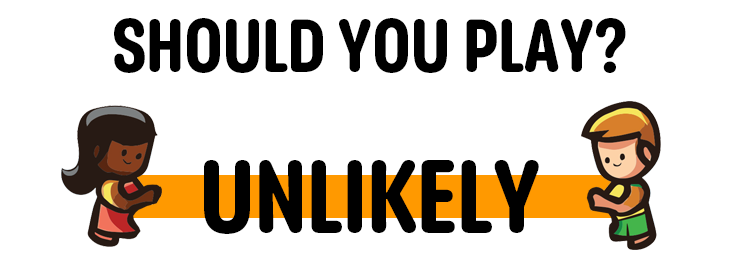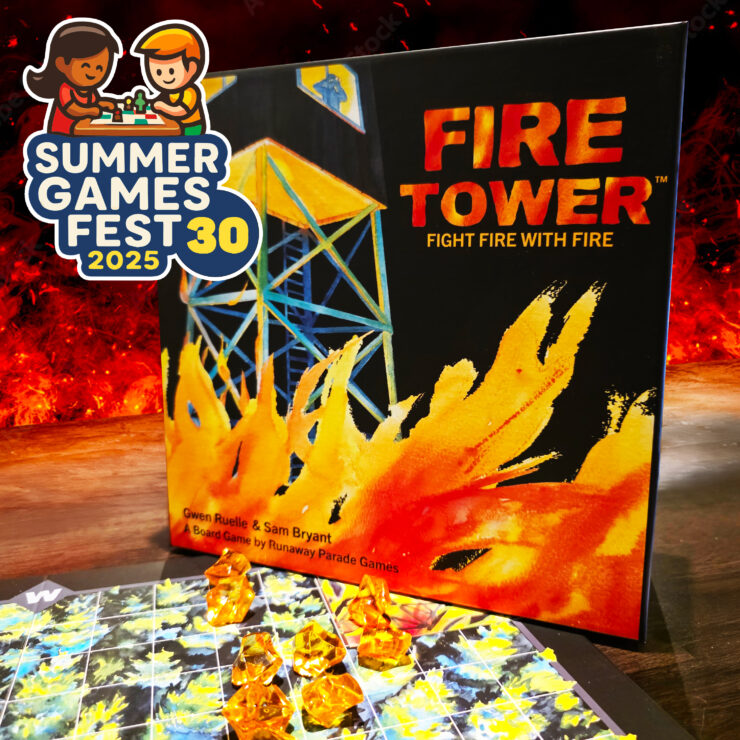Fire Tower is a game I’ve nearly bought quite a few times. Every year at the UK Games Expo, it has a fairly strong presence and the stand is always quite inviting to come and play, but I’ve never actually got around to trying it. Usually, we’re rushing around doing other things, and when I do finally have a few moments to spare, the table is always busy. In fact, when I think of UK Games Expo games, Fire Tower is normally one of the first that comes to mind.
It has, however, recently started hitting retail and copies have become a little more widespread. So, I finally decided to check it out, and if I’m being honest, I went in with quite high expectations. I know a lot of people really like this game and I’ve only ever heard good things. And while I do agree with some of the positive things I’ve heard, overall, I wasn’t completely on board with the game — and neither were the boys.
I have a feeling I might get a bit of pushback in the comments section for this one, so with that in mind, let’s get going…
Firstly, the theming of Fire Tower is quite unusual. If I’m being honest, it’s not what I thought the game was going to be about. I assumed it would involve trying to put out forest fires. A bit of an aside, but one of my favourite video games of all time is the indie game Firewatch, which is a beautiful, short, story-driven game about a man whose wife has early-onset dementia. When she goes into care and he can’t cope, he drops everything and takes up a job as a fire warden in the middle of a national park. His only contact is with another fire warden miles away, who he speaks to over the radio. There’s something strange happening in the area, and it’s one of the most emotionally evocative video games I’ve ever played. If you’ve never played Firewatch and have any interest in games as storytelling, I wholeheartedly recommend it.

But this is Little Board Gamers, not Little Video Gamers, so back to Fire Tower.
Rather than putting out fires or watching for them, you’re actually trying to manipulate and grow a fire in the forest to burn down your opponents’ firewatch tower, which sits in one corner of the board.
You start the game by placing four fire gems into the middle four squares. Each turn, players take actions to manipulate the fire. At the start of your turn, you must place a fire gem adjacent to another gem in the direction of the wind. This gradually grows the fire, ideally towards your opponents. Then, you can take an action from your tower — either playing a card from your hand, using your bucket action as a last resort, or your reckless abandon action if things are getting a bit sketchy.
Generally, the cards you play fall into four categories. Wind cards either change the wind direction or place a fire gem without changing it. Fire cards help spread fire in specific patterns. Water cards remove fire gems from the board. And firebreak cards allow you to create barriers to help protect your tower.
There are also event cards like Firestorm, which makes the fire spread much faster, or Mutual Aid, which lets you add or remove fire gems.
When a player’s tower is burned down, they’re eliminated from the game. There is a “shadow of the wood” mechanic, which allows eliminated players to continue influencing the game in some way — a nice touch that stops early knockouts from having to sit out for ages. In the end, the last player standing wins.

Now, all of that sounds great — and so far I’ve been fairly neutral. But here’s the issue. The theme felt a bit off. It was odd trying to burn down each other’s towers when we were supposedly acting as fire wardens. That didn’t really hold up, though I can overlook that in the name of a good abstract strategy game.
The bigger issue is that I never really felt like I had much control on my turns. The cards don’t let you do very much. You might place one or two gems or change the wind, only for the next player to use that against you. It never felt like my actions had much strategic impact. Because of the small hand size and the fact that only some of the fire cards feel particularly powerful, the whole thing felt a bit flat when playing.
Worse still, and this was the real sticking point, was what happened in multiplayer games. It’s far too easy for two players to gang up on a third. This happened in both of our games. Based on the direction of the fire in the first few turns, two players would target the third, and there was very little that player could do in response. Once you’re singled out, you’re basically gone, and that just isn’t fun. If two players decide to eliminate you, there’s very little you can do to come back. It’s a mechanic I’m not keen on.
The game does look great. The fire gems are lovely, and I really like the artwork. But considering how much this game had been built up in my mind, I came away a little disappointed, not just in what the game was asking of me, but also in how uninteractive it felt. Abstract strategy games are usually about clever positioning, fast thinking, and executing a plan. Here, I felt more like I was reacting or suggesting rather than actually planning.
Given how much I love Firewatch, the American fire tower theme really appealed to me. But Fire Tower didn’t live up to that promise. It wasn’t what I’d hoped. I didn’t find the strategy particularly engaging, and Jack really didn’t enjoy it either. He felt like the game was unfair, especially if two people gang up on one, which is exactly what happened and Toby had very little to say past “can we play something different.”
Despite the mostly negative tone of this review, I’m going to leave Fire Tower not as a flat-out definite no. I do think it has an audience. Unfortunately, we weren’t part of it.














